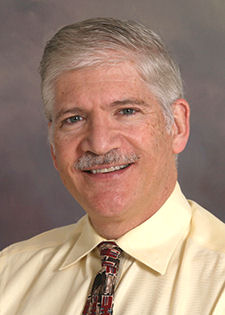Colorectal cancer usually begins with something as small as a non-cancerous polyp on the lining of the colon, but it can grow into a large tumor. Colon cancer is one of the most prevalent kinds of cancer in the world today, affecting men and women.
The colon is a long organ, shaped like a tube, that mainly absorbs water and some nutrients from food that has been broken down through the digestive system. The remnants become stool and stay in the colon until passed through the rectum.
 “Removing polyps can help reduce the risk of developing colon cancer, but a colonoscopy or flexible sigmoidoscopy are the only ways to find and remove the polyps,” said Robert Strauss, MD, a board-certified gastroenterologist with West Georgia Gastroenterology Associates and a member of the medical staff at Tanner Health System.
“Removing polyps can help reduce the risk of developing colon cancer, but a colonoscopy or flexible sigmoidoscopy are the only ways to find and remove the polyps,” said Robert Strauss, MD, a board-certified gastroenterologist with West Georgia Gastroenterology Associates and a member of the medical staff at Tanner Health System.
A colonoscopy is a screening exam that uses a tiny camera to “scope,” or view, the entire colon and rectum. Flexible sigmoidoscopy is similar, but only examines the rectum and the lower portion of the colon.
A colonoscopy typically takes about 30 minutes, while flexible sigmoidoscopies take about 10 to 20 minutes. Medication to help patients relax or enter a light sleep are available for each procedure. The only discomfort most patients cite from the procedures is due to the small amounts of air that are “puffed” into the colon to expand it and help the doctor see the images from the scope, which can cause bloating and pressure. In fact, many patients find the bowel preparation — which requires a clear liquid diet and strong laxatives to clean out the colon — to be more invasive than the study.
With 93,090 new cases of colon cancer and 39,610 new cases of rectal cancer expected to be diagnosed in the United States this year, colorectal cancer is the third most common cancer found in men and women (excluding skin cancers). The disease is expected to account for almost 50,000 deaths this year.
“The mortality rate for colorectal cancer has been declining for about two decades,” said Dr. Strauss. “Part of this decline is due to gastroenterologists removing polyps before they can become cancers. More people are also getting screened for colorectal cancer, allowing healthcare providers to detect the disease and begin treatment earlier.”
 There are about 1 million people alive today who had colorectal cancer in the past, according to the American Cancer Society. The lifetime risk of developing colorectal cancer is about 5 percent, or one in 20, and women have a slightly lower risk of developing the disease than men.
There are about 1 million people alive today who had colorectal cancer in the past, according to the American Cancer Society. The lifetime risk of developing colorectal cancer is about 5 percent, or one in 20, and women have a slightly lower risk of developing the disease than men.
When caught early, as many as nine in 10 cases of colorectal cancer are curable.
“People at average risk should begin screenings at age 50,” said Dr. Strauss. “Patients who have chronic inflammatory bowel disease or other risk factors, such as a family history of colon cancer, may need to begin testing at a younger age.”
“Tests that check for blood in stool and a new stool DNA test are other minimally invasive screening options,” said Dr. Strauss. “However, these blood and stool tests only find cancer, not polyps.”
Like most cancers, there are four main treatments for colon cancer — surgery, radiation, chemotherapy and targeted therapies, such as monoclonal antibodies. Researchers are making advances in all of these treatments. Patients find that today’s therapies are better tolerated than ever before. An oncologist will recommend a treatment plan based largely on the stage of the cancer. Often, two or more of these treatments will be employed as part of the therapy.
As with many forms of cancer, colon cancer can recur, but such recurrences are hard to predict. Even when you are cancer-free, it is important to adhere to your physician’s plan for follow-up screenings, exams and blood tests.
To find a gastroenterology specialist on staff with Tanner Health System, select Find a Doctor at the top of this page or call 770.214.CARE.